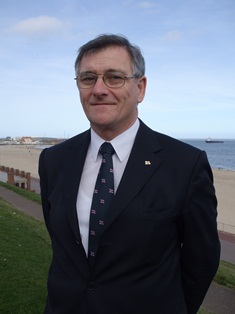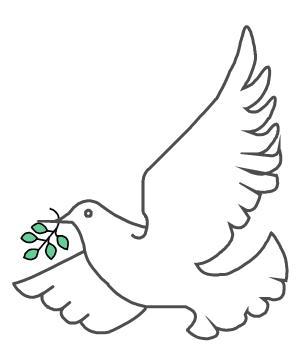Viewpoint from Rev Albert Cadmore for 17th August 2012
Rev Albert Cadmore
(Chaplain Norwich City FC & Trustee of Sports Chaplaincy UK)
Olympics Reflections
As I write th  is Viewpoint article Jessica Ennis is competing in the Olympic Heptathlon, and excitement is widespread following the success of ‘our’ cyclists, rowers and others and hopefully, as you read this, we’ll all be looking back on many more successful performances in the athletics arena and elsewhere. So many of us have been watching sports we’d never normally give a thought to, and with every new success, it seems the ‘feelgood’ factor abounds.
With thoughts of gold medals and success, the Olympic motto, ‘faster, higher, stronger’ rings true. Baron Pierre de Coubertin, who is widely acknowledged as the founding father of the Modern Olympics, took that phrase as the Olympic motto from a friend of his, Father Henri Martin Didon, a Dominican monk, who was principal of a College, near Paris. Didon used the discipline of sport as a powerful educational tool, and one day, following an interschool athletics meeting, he ended his speech quoting three Latin words, Citius, Altius, Fortius; (Faster, Higher, Stronger).
But the Olympics, and sport in general are not just about winning, and Coubertin got the idea for the phrase adopted as the Olympic Creed from a sermon given by the American Episcopalian Bishop Ethelbert Talbot at a service in St Paul’s Cathedral involving athletes and officials during the 1908 Olympic Games. Bishop Talbot paraphrased the closing verses of Chapter 9 of St Paul’s 1st letter to the Corinthians when he said, ‘Our prize is not corruptible, but incorruptible, and though only one may wear the laurel wreath, all may share the equal joy of the contest.’ Inspired by that sermon, Coubertin formulated his Olympic Creed, ‘The importance of these Olympiads is not so much to win as to take part.’ That sentence has modified over time, but remains an important part of the Olympic ideal. 
Whilst so much of our attention has focused on Team GB, my thoughts have often turned to another team of more than 50 chaplains from around the world representing the different faiths based in the purpose built multi-faith centre in the Olympic Village and working in a low-key and unobtrusive way, in the village and at the various venues. The Revd Canon Duncan Green, Head of Multi-Faith Chaplaincy Services with the London Organising Committee of the Olympic and Paralympic Games, has said: ‘Chaplaincy services will be supporting huge numbers of people during the Games. Our chaplains will offer a listening ear and a helping hand.’ Many of the chaplains are associated with Sports Chaplaincy UK, and under their auspices there are now over 220 sports chaplains in the UK and Ireland, providing spiritual and pastoral care to professional and amateur sports organizations, including around 70 of the 92 Premiership, Championship and Football League clubs.
During the Olympics I’ve been encouraged by the gracious manner in which so many disappointed competitors have accepted ‘not winning’, and I’ve been inspired by the sporting camaraderie between so many athletes. I believe Baron Caubertin and Bishop Talbot would identify with the widespread sportsmanship shown and the involvement of the chaplaincy movement at the games, and as St Paul asserted, ‘with God, and by faith, all can be winners’ - there’s an important message for us all.
|